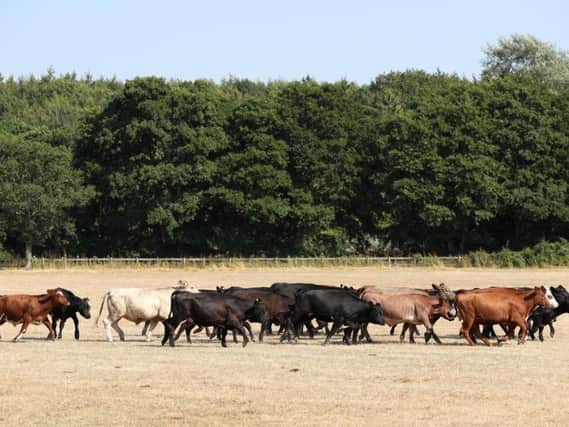Ben Barnett: Farming under 'constant attack' over climate change


Setting a goal in February for the industry to reach net zero in greenhouse gas emissions by 2040 – a full 10 years before the UK economy as a whole – has seemed to do little to quell a growing misplaced focus on an industry which is responsible for a tenth of the nation’s total emissions.
Transport, energy generation, other industrial processes, household and business energy use all exceed agriculture’s output but on social media, and increasingly within sections of the national media, there is a prevailing anti-meat message that is disproportionate to the emissions problem and overlooks the nuances of grass-based livestock systems across Britain.
Advertisement
Hide AdAdvertisement
Hide AdThe latest cause of ire this week came from the University of Cambridge no less. Its new ‘sustainable food policy’ includes removing beef and lamb from its menus and promoting plant-based food options instead.
A typical menu at the university now consists of aubergine rogan josh, butternut squash lasagne, roast chicken and breaded pork escalope.
The industry reacted on Twitter in droves, with levy body AHDB saying it had asked the university to show it how their carbon figures had been worked out.
As AHDB pointed out, livestock grazing helps to offset carbon dioxide emissions by capturing it and storing it below ground.
Advertisement
Hide AdAdvertisement
Hide AdA succession of environmentally-friendly measures to tackle the growing threat of climate change were revealed in a new report published this week by the National Farmers’ Union.
Introducing bigger hedgerows, the precision delivery of fertilisers and improving the health of cattle and sheep are all seen as critical next steps for an industry that is good at responding to signals.
This is the start of something, and hopefully the gains from adopting such measures will begin to show in government emissions data in the coming years and can be used to counter the misrepresentation of an industry that feels under constant attack.